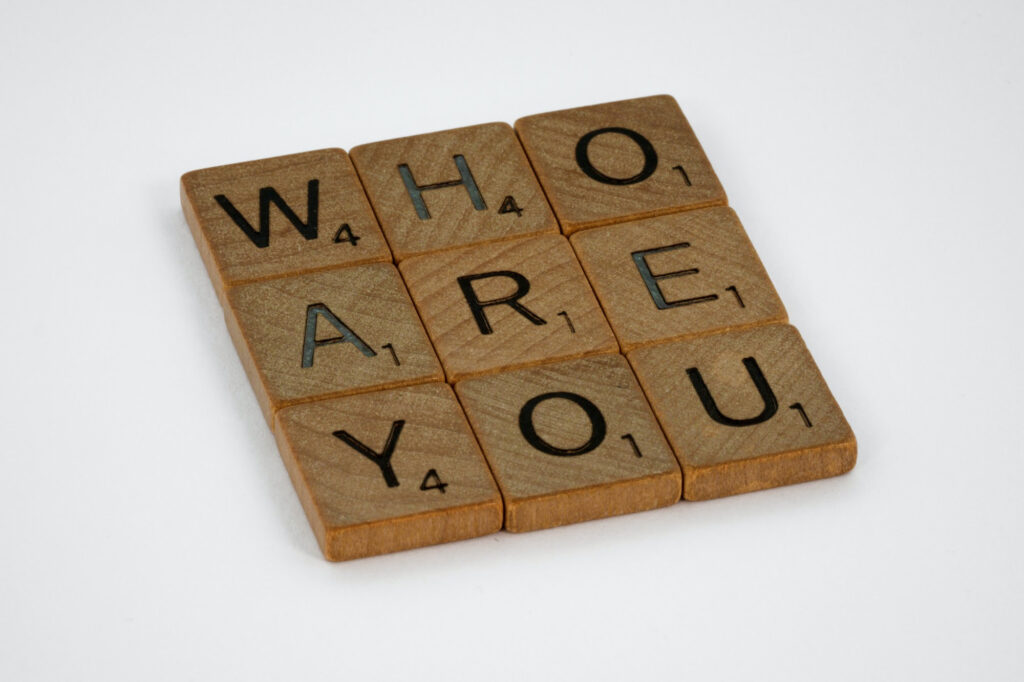
How Divorce Can Actually Help You Gain Self-Awareness
Rarely, if ever, do we grow when things are easy. We all know that. But we also all secretly hope there’s a loophole to that hard truth.
Ironically, more often than not it’s the unexpected events that give you the opportunity to increase self-awareness.
But why? How?
Self-awareness is as simple as it sounds and as challenging as it pretends not to be.
What? All I have to do is “be aware” of what I’m feeling? What I’m thinking? What my values and personality are? Why I think/feel/speak/behave/react the way I do?
Who doesn’t know those things about him/herself?
Well…possibly you.
What makes self-awareness not as easy as it looks – and an ongoing practice, not a destination – is the fearless self-exploration it asks of you.
And it’s precisely when you don’t want to look at yourself that self-awareness holds up the mirror…and adds a magnifying glass.
When life doesn’t go as expected or something happens that throws you off course, you have no choice but to respond. Even not responding is responding.
Unexpected events force you into unfamiliar territory. They elicit thoughts and feelings that may surprise you.
They also force you to make decisions from a different thought process.
And, in the course of thinking and feeling new things, you discover new things, primarily about yourself.

Wow! I’ve never reacted that way before. I’m surprised by how emotional I am right now. I wonder why I was so quick to get angry.
I like the way that felt. I don’t like the way that felt. I feel calm and peaceful. My heart is racing and I feel irritable. I feel in control. I feel defensive.
On the topic of knowing yourself and others, Mary Tyler Moore once said:
Sometimes you have to get to know someone really well to realize you’re really strangers.
In the early aftermath of divorce, that little fortune cookie of wisdom may seem to have your ex written all over it.
However, if you are determined that your divorce won’t be in vain, you will recognize that “someone” as yourself.
And therein will be your first step toward gaining self-awareness post-divorce.
But what does it mean to actually “gain” self-awareness? Aren’t you either “aware” or “unaware”?
The reason we speak of self-awareness as a practice and not a destination is that it’s fluid. It’s not stagnant, all-or-nothing, or unchanging.
Emotional self-awareness, for example, may start with the recognition of feelings. You’re aware that you “feel” something – in your body, in your mind, in your spirit.
An infant will cry as a response to the feeling of hunger, but does not have the cognition to identify it.
A toddler may throw a tantrum in response to being denied a desired object. But, again, he does not have the awareness or communication skills to identify the thoughts and feelings fueling his fit. He just “feels” the absence of gratification.
You may think those limitations evolve out of a person with age.
But think again.
If you are starting your post-divorce life, you can surely point to conversations in which you swore your ex had no self-awareness whatsoever. No ability to walk in someone else’s shoes. No empathy. No accountability for the expression of anger. No ability to even go deeper in the explanation of anger.
Nada. Zilch. Just one or two layers deep, then “close the window to the soul.”
But now you’re on your own (at least for now). And at some point you will realize that others care less about what your ex said or did than about your response to it.
Actually, since we’re being honest and aware here…what others really care about is how you step up and take accountability.

Photo credit: Canva
After all, you were half of your marriage. You contributed to the dynamic and the establishment (and following) of rules – spoken and unspoken.
You expressed or didn’t express your thoughts and feelings.
You contributed to arguments, hurts, silent treatment, white lies, withheld affection, blame, and everything else that slowly erodes relationships.
You were only human, of course.
But so was your ex.
Perhaps you acted out your thoughts and feelings so you didn’t have to take responsibility for them or face them head-on.
Perhaps you stayed in your marriage longer than you should have, but only now understand why.
Perhaps you and your ex never or no longer shared core values essential to holding a marriage together. And suddenly your personal values are rising to the surface.
You “feel” them, “hear” them, “experience” them in unexpected moments of choice. But you had never given them a voice…or a name.
Now, however, you’re paying attention to those conscience-tugging moments. You’re giving them names and assigning weight to them.
And, in doing so, you notice that your perceptions of other people deepen and have greater acuity.
You communicate with more authenticity.
You are able to listen with your heart and ask deepening questions that draw honest self-evaluation out of others.
You begin taking responsibility for shaping the outcomes you want by shaping your own behavior.
This is both how you gain self-awareness and how you live with self-awareness.

Yes, that’s just another way of saying that self-awareness inspires itself as an ongoing practice. The more you act with self-awareness, the more you work to deepen it.
Accountability becomes the stronghold of your character.
Having the willingness to look with scrutiny at your own contributions to the failure of your marriage takes courage. Tons of courage. It’s so much easier to simply throw your ex under the why-we-got-divorced bus.
You can’t change what you don’t own. Simply put, if you don’t gain self-awareness as a result of your divorce, you will inevitably carry that limitation into all your relationships going forward.
Divorce certainly isn’t the path you set out to walk when you’re planning your walk down the aisle. But here you are.
The pearl that waits for you is the unforeseen ability to gain self-awareness.
And that self-awareness can open your life to greater peace and more authentic, intimate relationships.
You just have to be willing to get your hands dirty and do some shucking.
I’m Dr. Karen Finn and I’m a life coach. Schedule a 30-minute private consultation for support in increasing your self-awareness so you can become more you in every facet of your life.
You can learn more about gaining and benefitting from self-awareness in How To Be More Self-Aware.
Related Posts:
How Can Self-Awareness Improve Your Relationship?
Instead of asking how can self-awareness improve things, the real question is how can’t it? It’s time to stop being a victim & embrace your power.
Read MoreHow Self-Awareness Can Affect Communication With Anyone In Incredibly Positive Ways
Knowing how self-awareness can affect communication can improve every relationship in your life. It’s a powerful tool that can facilitate problem-solving.
Read More- « Previous
- 1
- …
- 4
- 5
- 6


